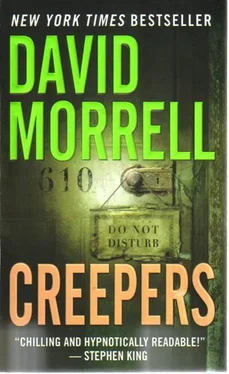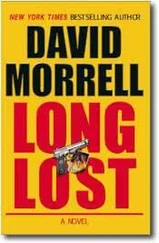By the early 1900s, the mile-long boardwalk was the pride of the Jersey shore. When thousands of vacationers weren't lying on the beach or splashing in the water, they ate salt-water taffy and visited the copper-and-glass carousel house or else the Palace Amusements building, where they rode the Scooter, the Twister, the Tunnel-of-Love boat, a merry-go-round, and a Ferris wheel. Ignoring the Methodist foundations of the community, many also went to the ornate casino that now occupied the southern end of the boardwalk.
Through the first World War, the Roaring Twenties, the Depression, and most of the second World War, Asbury Park flourished. But in 1944, symbolizing what was to come, a hurricane destroyed much of the area. Rebuilt, the resort strove for its former greatness, straining to keep it during the 1950s and almost retaining it during the 1960s when rock concerts filled the boardwalk's Convention Hall. Walls that had felt the swaying chords of Harry James and Glenn Miller now reverberated with the pounding rhythms of The Who, Jefferson Airplane, and the Rolling Stones.
But in 1970, Asbury Park could no longer resist its decline. While rock and roll was a force of the times, so were Vietnam, anti-war protests, and race riots. The latter stormed through Asbury Park, smashing windows, overturning cars, looting, and setting fires that spread until the flames gutted the community. Thereafter, local families fled the devastation while vacationers migrated to newer spots along the shore. In their place came the counterculture: hippies, musicians, bikers. Then-unknown Bruce Springsteen often played in local clubs, singing about the desperation of the boardwalk and the urge to head down the road.
In the 1980s and 1990s, political instability and real-estate bankruptcy doomed efforts to rebuild the community. As more residents fled, entire blocks became uninhabited. The Palace Amusements building, dating back to 1888, practically synonymous with Asbury Park, succumbed to the wrecking ball in 2004. The decaying boardwalk was deserted, as was the famous Circuit in which bikers and hot-rodders once cruised north on Ocean Avenue, sometimes at sixty miles an hour. In the old days, they veered west for a block, then roared south on Kingsley Avenue, slid east for a block, and resumed their race north on Ocean. No more. Gone. A visitor could stand all day in the middle of Ocean Avenue and never fear being struck.
The rubble and ruin resembled the aftermath of a war zone. Although 17,000 people claimed to be residents of Asbury Park, it was rare to see any of them in the blight of the beach area where, a hundred years earlier, a multitude of vacationers frolicked. In place of carousel music and children's giggles, a loose piece of sheet metal banged in the wind, a clang of doom from an uncompleted ten-story condominium building. Evidence of the city's dismal renewal effort, the project ran out of money. Like the historic buildings around it-the few that remained-the development was abandoned.
Clang.
Clang.
Clang.
Balenger watched the professor unfold a map, then tap a finger on a section two blocks north.
"The Paragon Hotel?" Cora asked, reading.
"Built in 1901," Conklin said. "As its name indicates, the Paragon claimed to be the model of excellence. The finest amenities. The most painstaking service. A marble-floored lobby. Exquisite porcelain dinnerware. Gold-plated eating utensils. A telephone in each room at a time when the only phones would normally have been in the lobby. A heated indoor swimming pool when that was a rarity. A steam room, which wasn't common either. An early version of a whirlpool spa. A ballroom. An art gallery. An indoor roller-skating area. A primitive air-conditioning system based on forced air being blown over ice. Also, a full heating system, which was unusual, even for the finest beach hotels-after all, their clients were summer visitors wanting to get away from the heat. Four recently invented, gearless electric elevators with push-button controls. Room service was available twenty-four hours a day. The elevators plus a system of electric dumbwaiters guaranteed prompt delivery."
"Throw in some cocktail waitresses, and you've got Las Vegas," Vinnie said with a grin.
Balenger tried to blend with the group by looking amused.
"The Paragon was designed by its owner, Morgan Carlisle, who inherited the family fortune after his wealthy parents died in a fire at sea." The professor's explanation made Vinnie's grin dissolve. "Carlisle was only twenty-two, eccentric, withdrawn, given to fits of anger and deep depression, but he also showed brilliance in whatever he tried. He was a genius constantly verging on a nervous breakdown. It's ironic that a steamship line was the source of his fortune and yet he had a morbid fear of traveling. He was a hemophiliac, you see."
The group peered up from the map.
"The bleeding disease?" Cora asked.
"Sometimes called the 'royal disease' because at least ten male descendants of Queen Victoria were afflicted with it."
"The slightest bump or fall causes almost uncontrollable bleeding, right?" Balenger asked.
"That's correct. Basically, it's a genetic disorder in which blood fails to clot properly. Without showing symptoms, females pass it on to males. Often the hemorrhaging isn't external. Blood seeps into joints and muscles, with crippling pain that forces the victim to stay in bed for weeks."
"Is there a cure?" Balenger made a note.
"No, but there are a few treatments. In Carlisle's youth, an experimental procedure involved blood transfusions that temporarily supplied him with clotting agents from normal blood. His parents were terrified that an accident might cause him to bleed to death, so they kept him under strict control, almost a prisoner, supervised by the servants. He was never allowed outside the family home in Manhattan. His mother and father loved to travel, however, and frequently left him alone. It's been estimated that they stayed away six months every year. They returned with photographs, paintings, and stereoscope images showing him the wonders they'd seen. He was so programmed to stay indoors that he developed agoraphobia and couldn't bear the thought of going outside. But after his parents died, he mustered all his frustration, courage, and anger, and vowed that for the first time in his life, he'd change locations. He'd never set foot on the Fifth Avenue sidewalk outside his home, but now he was determined to design a hotel and live in it, at a fabulous, beyond-imagining ocean resort that all Manhattan was talking about: Asbury Park. The model he used came from one of those stereoscope images his parents brought him. A Mayan ruin in the jungles of Mexico."
Balenger noticed how intense the group's eyes became.
"Carlisle decided that if he couldn't see an actual Mayan pyramid, he would build one for himself," the professor continued. "The structure was seven stories tall: the height, width, and depth of the original pyramid. But he didn't slavishly imitate. Instead, he decided that each level would be set back, the upper floors getting smaller, until only a penthouse stood at the top, a modified pyramid shape that anticipated art-deco buildings in the 1920s."
Rick frowned. "But if he had agoraphobia…"
"Yes?" Conklin studied Rick, waiting for him to draw the logical conclusion.
Cora was quicker. "Professor, are you telling us that Carlisle moved into the hotel, lived in the penthouse, and never left?"
"No, you just told me." Conklin put his hands together, pleased. "One of the elevators was for his private use. Day or night, but mostly at night, when the guests were asleep, he had a small version of the world at his disposal. Given the cost of the hotel, the enterprise never had a chance of making a profit. Even the rich would have balked at the prices Carlisle would have needed to charge. Those with moderate means would have stayed away entirely. So Carlisle made his prices competitive. After all, the point was to surround himself with life, not make a profit."
Читать дальше












